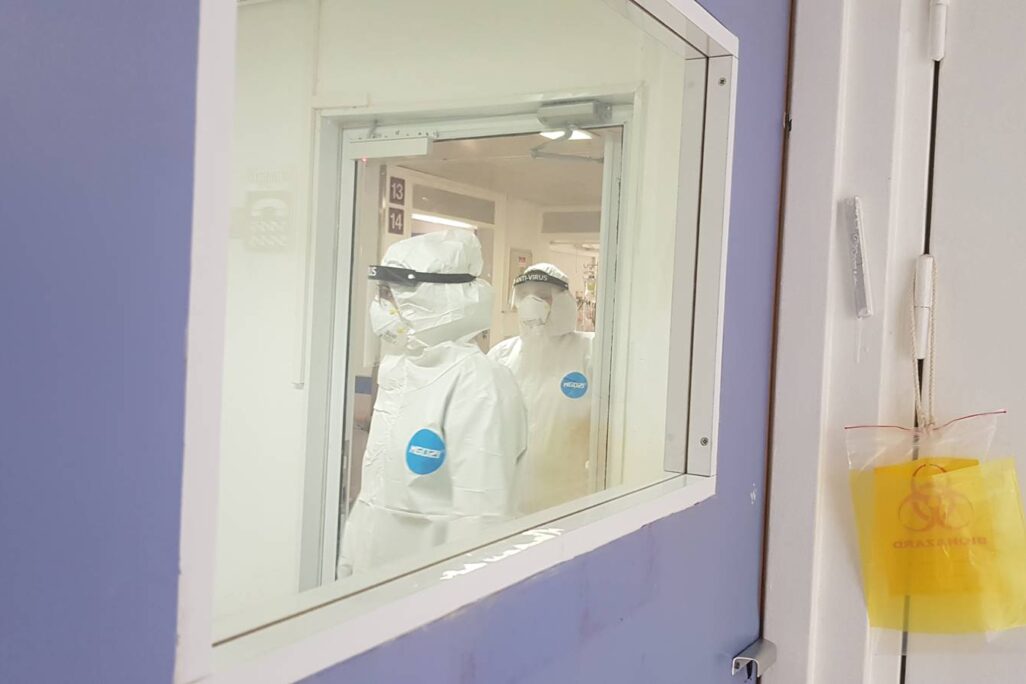
Chaya Avinoam, head nurse of the “Corona A” ward at Barzilai Hospital in Ashkelon, sits at the nurses’ station and answers incessant calls from patients' families. In the room, which is on the “clean” side of the transparent wall surrounding the patients, she updates families on their loved ones’ condition: "She asked for water and I sat with her for a while," "We told him to breathe with the device through his nose, but it was difficult." At the same time, she gives instructions to two nurses dressed in protective gear and distributes medicine and breakfast to patients on the other side of the wall.
Nurses on the ward consult with Avinoam about patients via walkie-talkie. One of them asks for a fresh mask, and Avinoam puts it in a drawer created specifically for handling equipment.
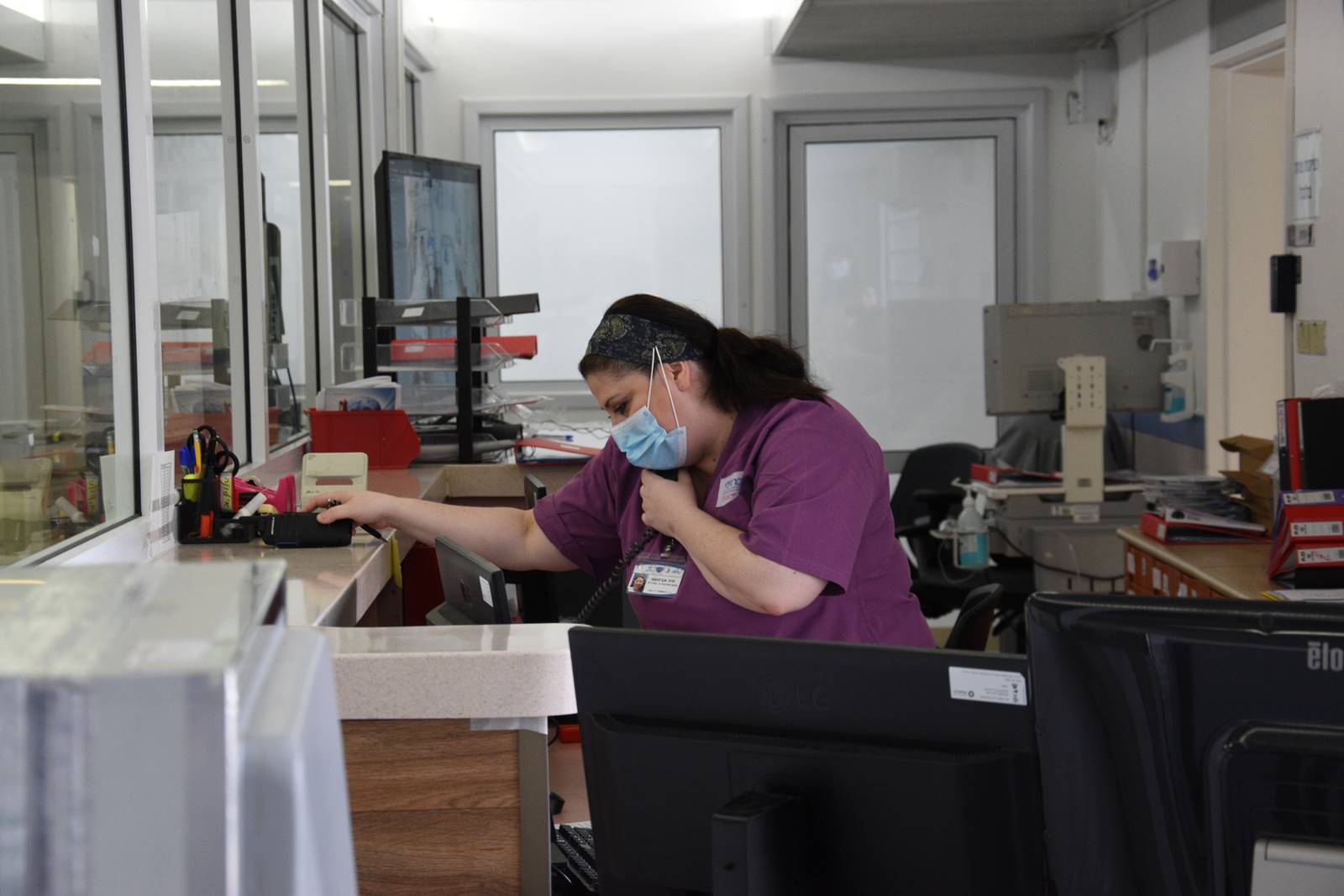
Before the pandemic, Avinoam was the head nurse in the intensive care unit, but since the coronavirus ward was reopened about three weeks ago, she’s returned to the role she held at the beginning of the outbreak. "They called me and told me they needed me, so I came," she says. The twenty nurses on the ward staff also come from other department in the hospital – internal medicine, neurology, geriatrics and intensive care.
While the Knesset, the government and the media, debate how to deal with COVID-19 – and if and when another lockdown will be announced – within the nation’s hospitals, healthcare staff are settling into the routine of treating COVID-19 patients. Dr. Boris Goltzman, director of the “Corona A” ward at the Barzilai Hospital, says they’re now in "the calm before the storm." The storm is the flu season in the winter. Meanwhile, the newly-reopened ward is struggling to deal with the unique challenges of treating coronavirus patients.
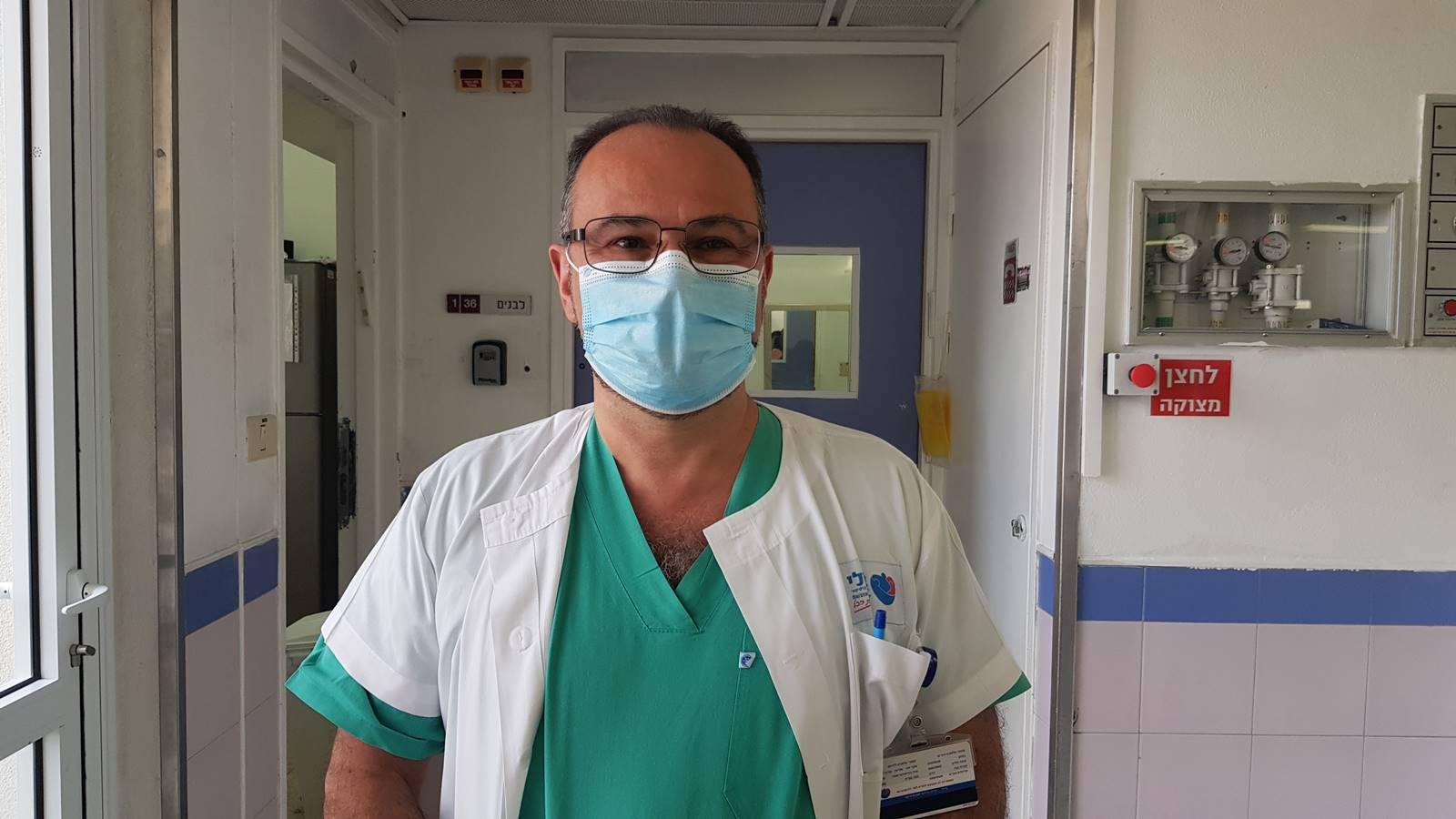
"During the first wave [of the pandemic], we felt acute pressure. Now the pressure is more chronic," says Avinoam. "I’m responsible for everything – patients, missing equipment, logistics. I worked in the internal medicine ward for twenty-one years and in intensive care for two years. This ward has been the most stressful. We’re constantly alert. The ward has to function, there’s is no such thing as forgetting equipment. "Who took the tests, who sent them [to the lab], did we get the results, has everything been approved? And we’re constantly on the phone, because families are not allowed to be here with the patients."
When the ward re-opened, its first patients were fourteen nursing home residents who had been infected by COVID-19. They were later joined by younger patients, including a pregnant woman who gave birth in a specially-outfitted room in the maternity ward. A midwife joined the ward team to take care of the mother and newborn.
When you’re with patients, you don’t feel the protective gear
Working in personal protective equipment (PPE) is physically demanding for nurses and doctors – the gear is hot, makes it hard to see and hear, and leaves red marks on their faces. However, Avinoam says her team feels that their responsibility to patients, who are isolated from their families, outweighs the discomfort. "When the two hours we’re allowed to work with [PPE] are over, it’s always hard to leave. I’m focused on the needs of the patients, and there’s always something else to do for them. I have to force myself to return to the clean side, for my own health," says Avinoam.
![A nurse suits up in PPE in the coronavirus ward at Barzilai Hospital in Ashkelon. Chaya Avinoam: " When the two hours we’re allowed to work with [PPE] are over, it’s always hard to leave. I’m focused on the needs of the patients, and there’s always something else to do for them. I have to force myself to return to the clean side, for my own health." (Photo: Oren Kahlon) A nurse suits up in PPE in the coronavirus ward at Barzilai Hospital in Ashkelon. Chaya Avinoam: " When the two hours we’re allowed to work with [PPE] are over, it’s always hard to leave. I’m focused on the needs of the patients, and there’s always something else to do for them. I have to force myself to return to the clean side, for my own health." (Photo: Oren Kahlon)](https://static.davar1.co.il/www/uploads/2020/07/250720_barzilai15.jpg)
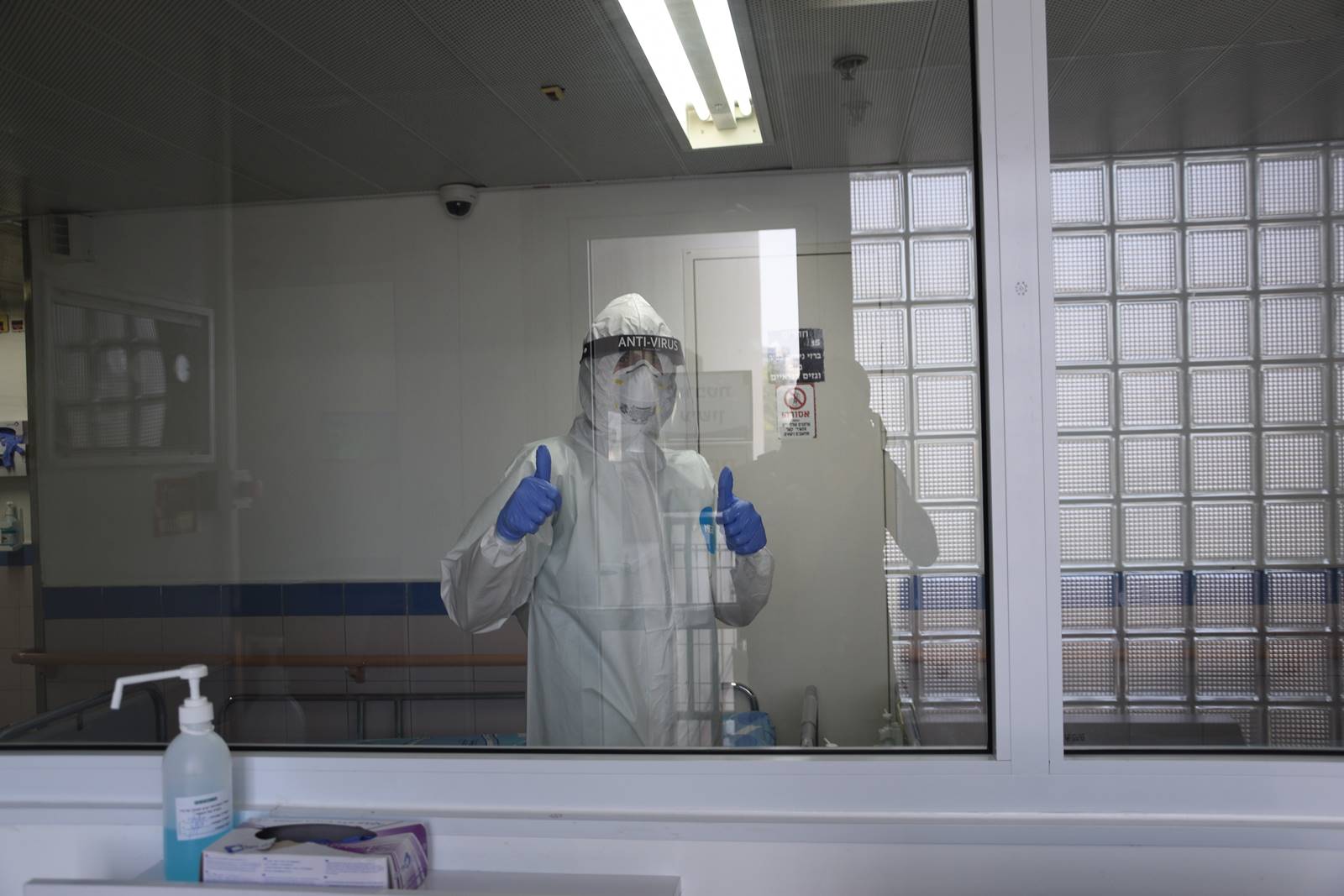
"For patients with anxiety, we have to be more than doctors"
Treating coronavirus patients takes a heavy emotional toll on the ward's staff, which includes two senior doctors, three residents and three interns. "Working here feels like a test of how dedicated we are, how much we care about the patient," says Dr. Tarek Arar, a resident in the department. "A lot of patients are anxious, and we have to be more than doctors for them. We have to support them emotionally too."
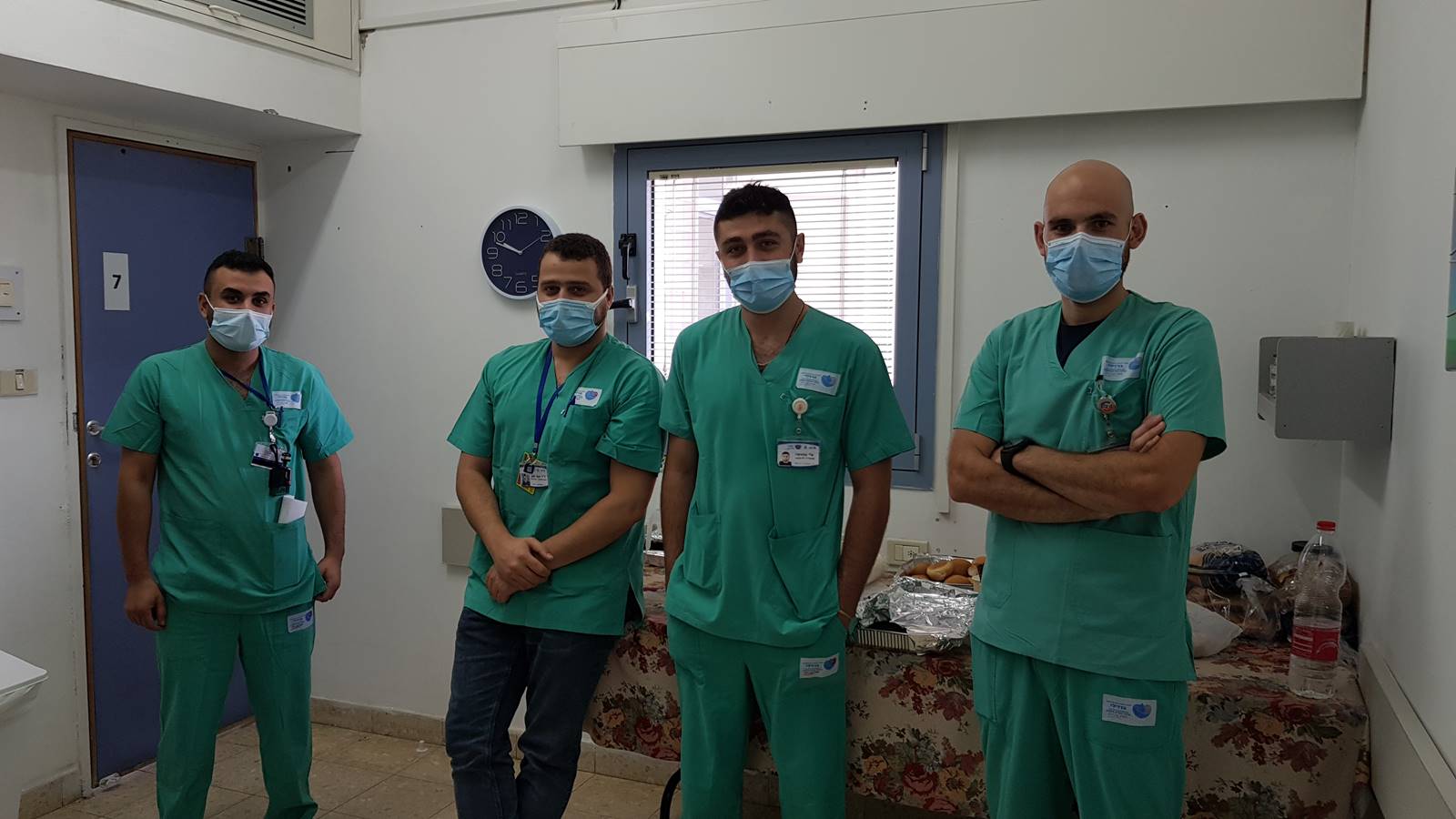
Fadi Shabag, an intern doctor on the ward, describes conversations with patients who "are sure they are going to die, and we give them the boost they need to keep fighting for their lives." Some of the young doctors live in the north of the country, and haven’t been home since the department opened because of the crushing workload.
Nurses taking on a social workers’ responsibilities
Since social workers in Israel have gone on strike two weeks ago, nurses on the ward have taken on even more responsibility. Last week, nurses found themselves trying to convince a patient whose condition was declining to go onto a ventilator. After the staff tried to explain her condition and address her anxiety, Avinoam called the patient's family members and asked them to speak with her. Outfitted in protective suits, they came into the ward and managed to persuade her to agree to ventilation that could save her life.
Most of the time, visitors in the ward are forced to stay beyond the transparent dividing wall—watching their loved ones on cameras and speaking to them through walkie-talkies, all of which is coordinated by the department social worker.
"Patients who feel fine can decline in a matter of minutes"
In addition to the emotional challenges, the team struggles daily with the virus itself, which affects almost all major systems in the body. Patients infected with COVID-19 have to be closely monitored, since Avinoam says that even a patient who feels well may be in danger. "It's a quiet lung disease. People can have low blood oxygen, which can turn into a critical condition in a second, and they don't feel it coming."
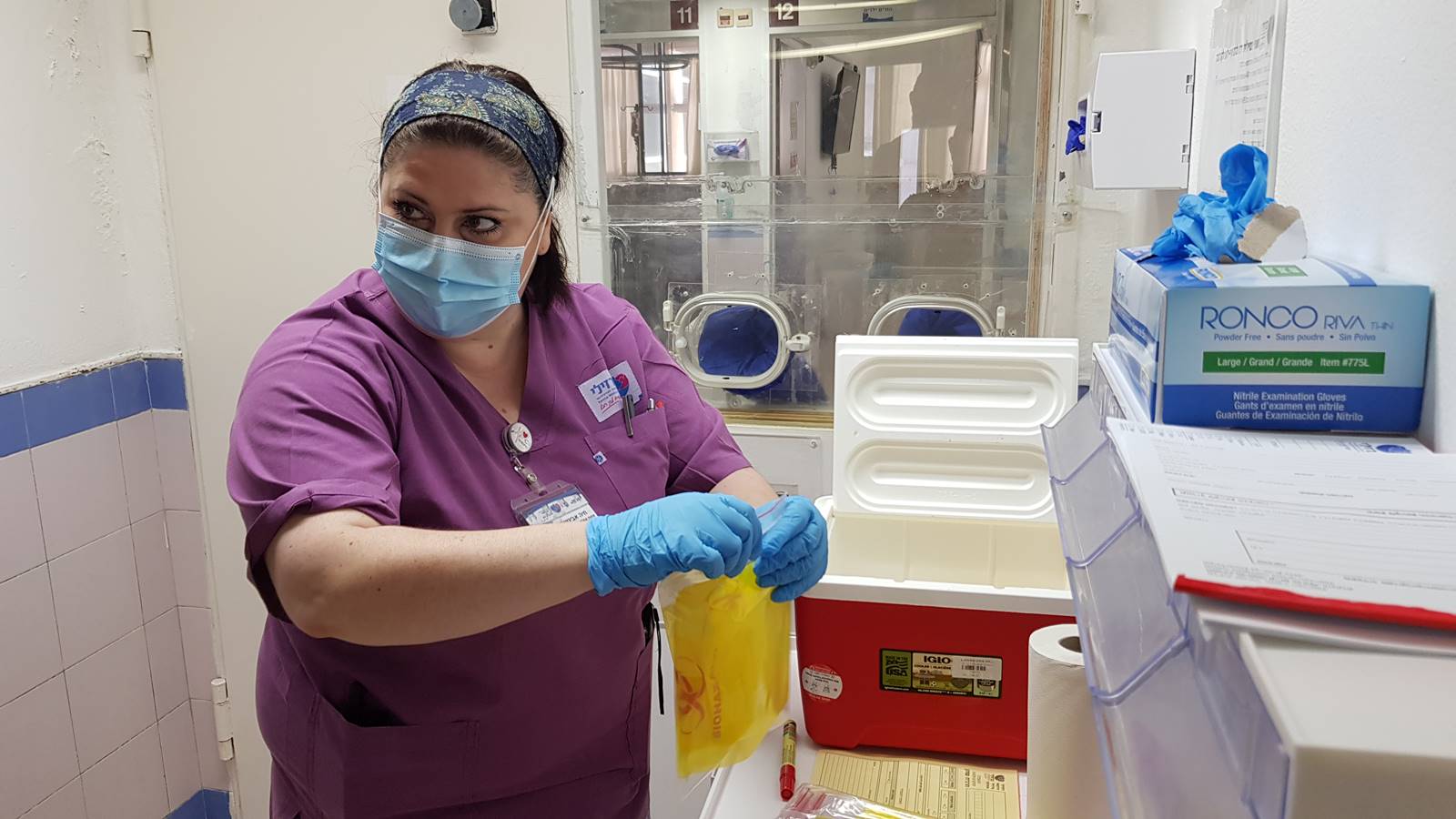
"I see a lot of chest x-rays of pneumonia that look really bad, and very low oxygen levels, in patients who feel fine and can walk around the ward. Any other case of pneumonia that would do damage at that level would cause them severe shortness of breath. We don’t discharge patients until their x-ray shows improvement.” Avinoam says, "if those patients had stayed in another ward in the hospital and not come here, it could have ended badly."
The staff is also aware of secondary issues that can develop as a result of blood clotting caused by the disease, and almost all patients are sent home with blood-thinning medications.
"My commute home on the bus is scarier. Here I’m actually protected."
The staff doesn’t seem worried about being infected by the virus. They point out that in Israel there are no cases of medical staff becoming infected after encountering COVID-19 patients. Ironically, the corona ward, outfitted with the separation wall and PPE, is one of the safest places in the hospital – and perhaps the country.
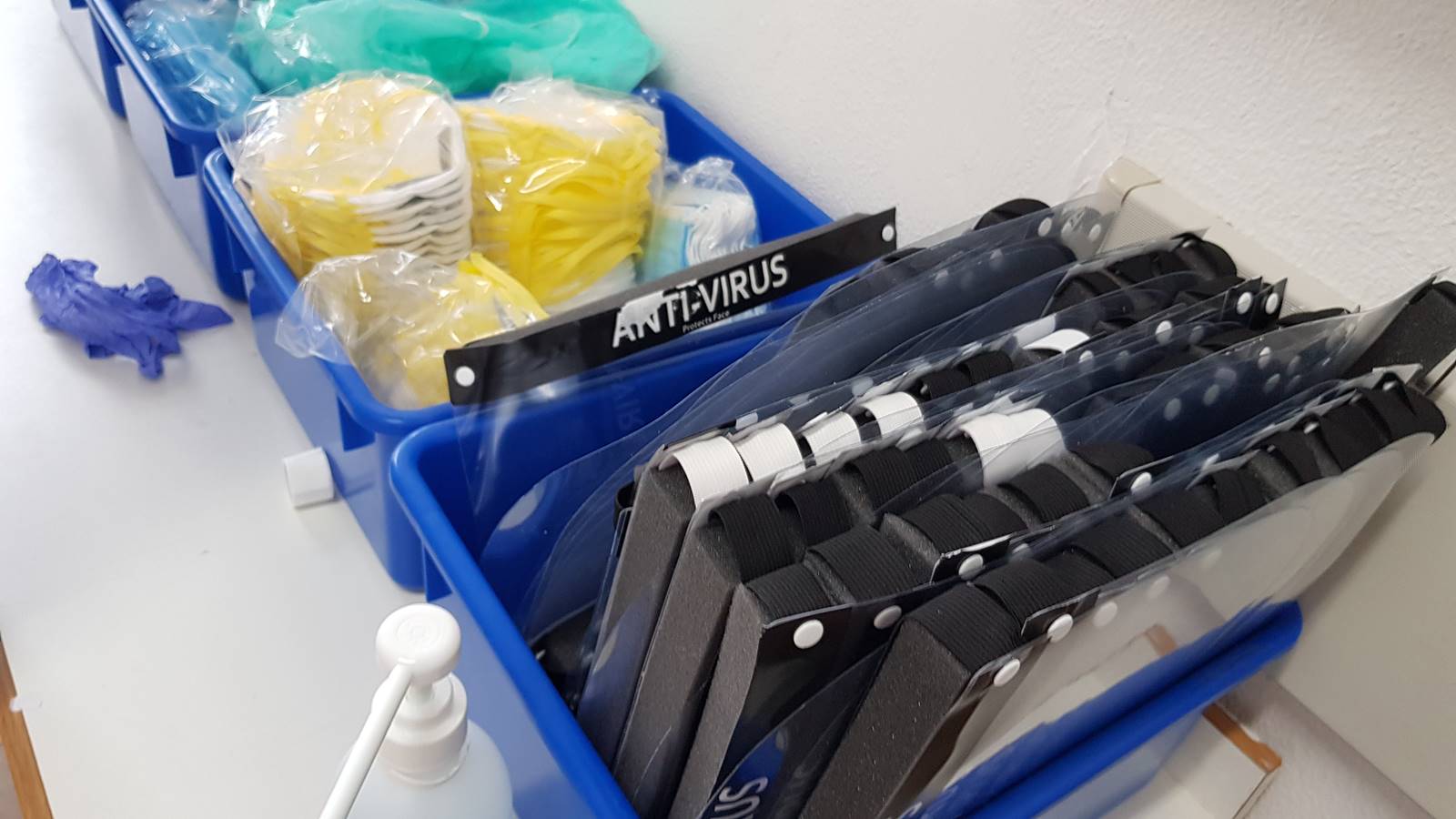
Marina, who works as a cleaner at the hospital, cleans patients’ rooms while wearing a protective suit. She says she is not afraid of becoming infected: "I'm more afraid of going home on the bus. On the bus people wear a mask under their nose, or even below their chin. Here I’m actually protected." Despite this, her work carries a stigma, and she hides it from her family. "My husband would have a heart attack if he knew I was going into the coronavirus ward."
"The entire barzilai team is united in the fight against corona"
Although coronavirus patients are limited to two specialized wards, the pandemic has dramatic effects on the entire hospital. Other departments have been forced to function without the staff members who’ve moved to the corona ward, as well as without fifty staff members who are currently in quarantine. For the rest of the staff, that means working additional shifts and giving up vacation days.
"The entire barzilai team is united in the fight against corona," says Prof. Yaniv Scherer, the hospital's interim director. "Security guards, kitchen staff, the lab people who work till eleven at night every day, including Friday and Saturday, everyone who works more shifts in the wards. Everyone is involved.”
Prof. Scherer expects that the new guidelines for doctors and nurses, announced by the Ministry of Health last week, will help the hospital deal with what it calls the "war of attrition against Corona." In his view, "maintaining normal activity is no less important than treating COVID patients."
The hospital has the capacity to open a third coronavirus ward, without compromising its ability to care for other patients. In the worst-case scenario, the hospital has enough equipment to open up to eight specialized coronavirus wards. Dr. Goltzman has already started training staff from other wards to treat coronavirus patients, so that the hospital can staff additional coronavirus wards.
"My family shouldn’t bear the brunt of what I’m going through"
Recently, as nurses across Israel went on a strike, demanding that the government hire additional nurses, the staff at the coronavirus ward continued to care for patients. Avinoam called the strike a necessary response, as nurses nationwide are suffering from impossible working conditions.
"Nurses aren’t spoiled, [we] do whatever it takes. We set up the coronavirus wards using only the staff we have, and that created insane pressure on all the other wards. I have four children, and I want to go home and be a mother too. I'm exhausted, not just physically. My emotional energy goes to the patients. My family shouldn’t bear the brunt of what I’m going through."
As a result of the nurses’ strike, Ministry of Funance agreed to add two thousand nurses to the health system. Avinoam comments: "It’s a huge achievement, and I’m glad we’re getting recognition for our work. If the hospital hires more nurses as promised, we’ll continue to do the same work as we do now, but without such crushing, impossible demands. "






